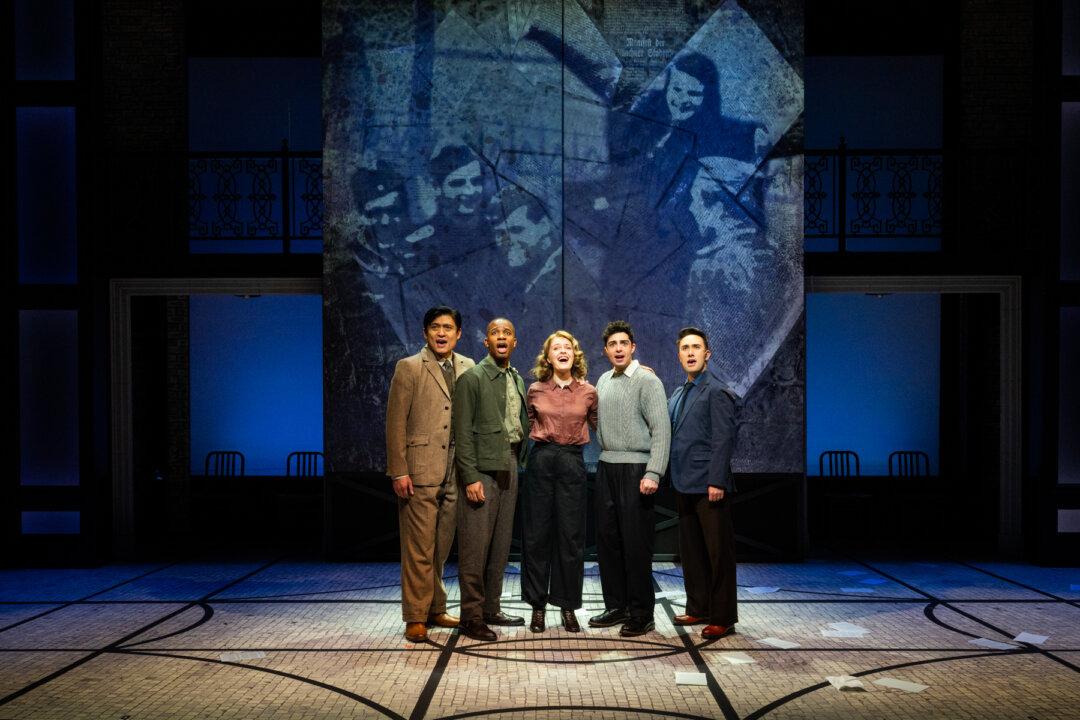NEW YORK—Just because you can’t change the world, doesn’t mean you should stop trying. This phrase is uttered by just about every generation since time began and it has a particular meaning for a group of German students during the Nazi regime in “White Rose: The Musical.” With book and lyrics by Brian Belding and music by Natalie Brice, this stirring drama recalls a real-life tale of heroism and hope at a time when both were in short supply.
It’s 1942 and Sophie Scholl (Jo Ellen Pellman) has arrived in Munich to attend the university there with her brother Hans (Mike Cefalo), an Army medic, recently back from the front lines. When not busy with school, Sophie hopes to visit some of the city’s cultural institutions—at least those not yet closed by the authorities. However, her innate idealism, which has previously threatened to get her in trouble back home, faces a rude awakening when she learns of the new German order’s academic restrictions such as not to reference books that are now banned, or even mention the authors who wrote them.





